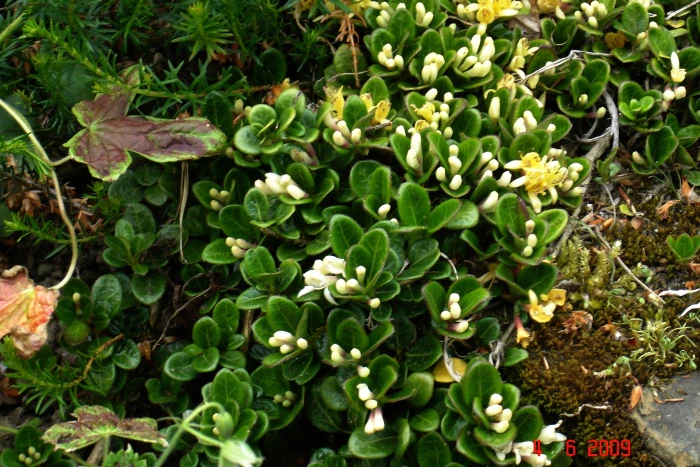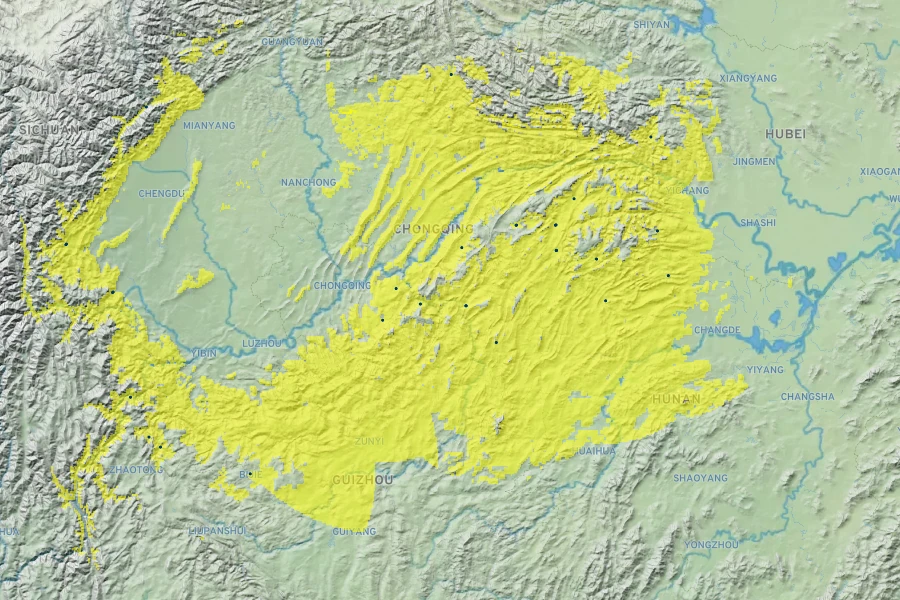Creeping Honeysuckle
/
(Lonicera crassifolia)
Creeping Honeysuckle (Lonicera crassifolia)
/

peganum
CC BY-SA 2.0
Image By:
peganum
Recorded By:
Copyright:
CC BY-SA 2.0
Copyright Notice:
Photo by: peganum | License Type: CC BY-SA 2.0 | License URL: https://creativecommons.org/licenses/by/2.0/ | Uploader: peganum | Publisher: Flickr |





Summary
Lonicera crassifolia, commonly known as Creeping Honeysuckle, is an evergreen perennial vine native to the forest margins, scrub, and rocky areas in South-Central and Southeastern China. It is a low-growing plant, typically reaching a height of 0.1-0.3 feet (0.03-0.09 meters) and spreading 0.7-1 feet (0.2-0.3 meters) wide, forming dense mats of foliage. The leaves are small, ovate, and glossy, contributing to its attractive ground-covering appearance. Creeping Honeysuckle produces tubular yellow flowers in the spring and summer, which are modest in size but can be quite showy due to their abundance.
This plant is valued for its ability to cover the ground quickly, providing an evergreen carpet that suppresses weeds and stabilizes soil. It is often used in shaded garden areas, under trees, or on slopes where other plants might struggle. Creeping Honeysuckle is relatively low-maintenance, requiring only occasional pruning to keep it within bounds. It prefers part shade to full shade and thrives in well-drained soils. While not commonly afflicted by diseases, it can occasionally suffer from leaf spot or powdery mildew in humid conditions.CC BY-SA 4.0
This plant is valued for its ability to cover the ground quickly, providing an evergreen carpet that suppresses weeds and stabilizes soil. It is often used in shaded garden areas, under trees, or on slopes where other plants might struggle. Creeping Honeysuckle is relatively low-maintenance, requiring only occasional pruning to keep it within bounds. It prefers part shade to full shade and thrives in well-drained soils. While not commonly afflicted by diseases, it can occasionally suffer from leaf spot or powdery mildew in humid conditions.CC BY-SA 4.0
Plant Description
- Plant Type: Vine
- Height: 0.1-0.3 feet
- Width: 0.7-1 feet
- Growth Rate: Moderate
- Flower Color: Yellow
- Flowering Season: Spring, Summer
- Leaf Retention: Evergreen
Growth Requirements
- Sun: Part Shade, Full Shade
- Drainage: Medium, Fast
Common Uses
Bee Garden, Bird Garden, Border Plant, Butterfly Garden, Deer Resistant, Drought Tolerant, Groundcover, Hummingbird Garden, Low Maintenance, Salt Tolerant, Street Planting
Natural Habitat
Forest margins, scrub, and rocky areas in South-Central and Southeastern China
Other Names
Common Names:
Scientific Names: Lonicera crassifolia, Lonicera rhododendroides
GBIF Accepted Name: Lonicera crassifolia Batalin
